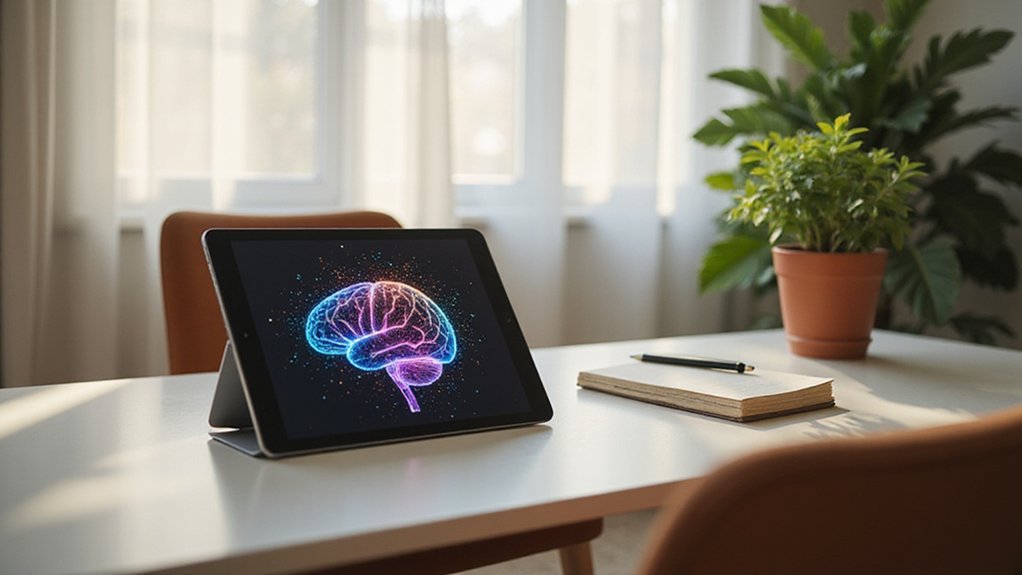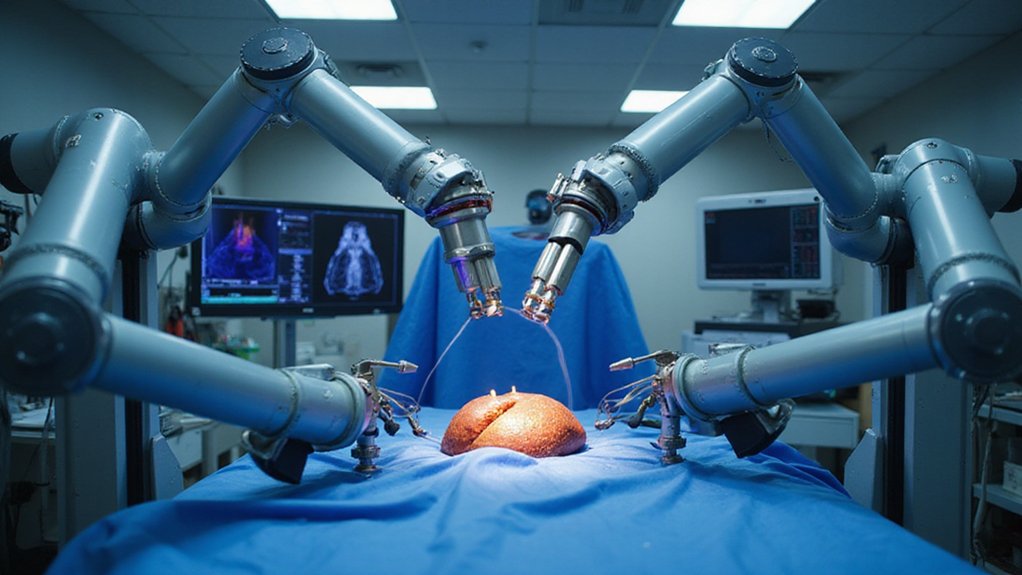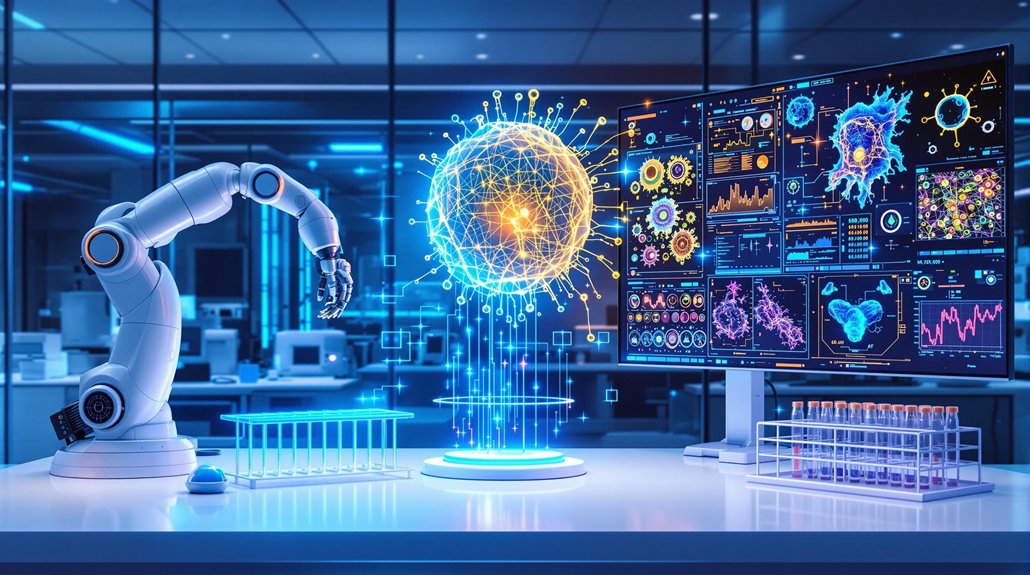AI therapists are emerging as valuable mental health tools, reducing depression symptoms by 64% in studies. They provide 24/7 support and reach people without access to traditional care. Most mental health professionals (92%) view AI as beneficial, though challenges remain with complex emotional situations and data privacy. AI complements rather than replaces human therapists. The technology continues to evolve with promising developments on the horizon.
A growing number of people are finding help for mental health concerns through artificial intelligence. Recent studies reveal impressive results, with AI chatbots reducing depression symptoms by 64% compared to control groups. A meta-analysis of 15 studies involving over 3,800 participants confirms these digital tools can effectively support mental health treatment.
The technology shows particular promise in addressing healthcare gaps. AI therapists provide 24/7 support to people who might otherwise receive no care at all. These digital tools serve as helpful additions to traditional therapy rather than complete replacements. The growth of AI therapy tools parallels the renewable energy surge seen in global electricity generation, where technological innovation is transforming traditional systems. Most mental health professionals recognize this value, with 92% reporting AI as beneficial in their field.
AI mental health tools aren’t replacing therapists—they’re extending care to those who need it most when human help isn’t available.
The most effective AI systems use cognitive-behavioral therapy techniques and mindfulness approaches. Multimodal chatbots that combine text, voice, and visuals show the strongest results. AI models can predict mental health outcomes with up to 92% accuracy, helping clinicians identify patients who might need extra attention. These AI solutions have dramatically improved accessibility to mental health services, with studies showing large-scale reach of nearly one million users for certain interventions.
Research continues to advance rapidly. A 2024 study analyzed 20 million text conversations from counseling sessions, establishing new benchmarks for understanding how conversation content relates to clinical outcomes. Two 2025 Cedars-Sinai studies further confirm AI’s effectiveness as a mental health therapy tool.
Despite these promising developments, challenges remain. Nearly half of case managers report specific concerns with AI implementation. The technology sometimes struggles with complex emotional situations, and data privacy issues persist. Many providers remain hesitant to adopt these systems, and regulations haven’t kept pace with technological advances.
User experience also matters greatly. Personalization capabilities, interface design, and cultural competence all affect how well these systems work. Future improvements will likely include biometric data integration and predictive analytics to anticipate mental health crises. This is reinforced by the second Cedars-Sinai study, which showed AI therapists providing bias-free counseling across diverse patient profiles.
As AI therapy tools continue to evolve, they represent both an exciting opportunity to expand mental healthcare access and a reminder that technology alone can’t replace human connection in the healing process.
References
- https://pmc.ncbi.nlm.nih.gov/articles/PMC11488652/
- https://www.cedars-sinai.org/newsroom/can-ai-improve-mental-health-therapy/
- https://augnito.ai/resources/ai-in-mental-health-trends-and-statistcs/
- https://trendsresearch.org/insight/smart-therapy-solutions-the-rise-of-ai-in-mental-health-care/
- https://www.fiercehealthcare.com/ai-and-machine-learning/ai-can-crack-open-black-box-effective-mental-health-counseling-scale-study









